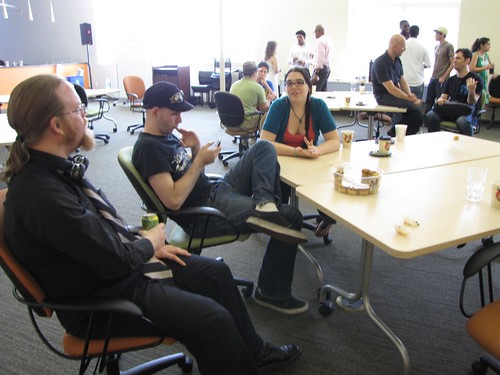by Lea Woodward
Looking at the state of the blogosphere now, it might be hard to believe that just six short years ago, there was no thriving online community of location-independent, like-minded pioneers who’d be your cheerleaders, mentors and guides, publishing hundreds of articles, eBooks and courses to help you run your own online business, go nomadic and live your best life.

Back then…
I simply started blogging – without an idea of who my audience might be – sharing what we were learning as we embarked upon our lives and work-from-anywhere lifestyle. I had no idea if anyone was really reading – until I started to get emails and comments from those who were. I certainly didn’t feel part of any kind of community – online or off.
Back then, I didn’t have a clue about how powerful a community could be when it comes to crafting the life you want to live – unconventional or not. I wasn’t really plugged into a local community and Twitter was in its infancy, as was the kind of blogging explosion we have today.
Fast forward to today…
…and I’m part of numerous communities – online and off.
Much of this has happened naturally, organically and as a natural consequence of being around online for long enough to get to know a few people – and because I’ve worked on projects which have attracted attention. But now as I begin afresh, working on a business which is at the same time related and unrelated to other things I’ve done and which requires a whole new set of relationships to make it fly, I’m once again approaching things a bit more strategically than last time.
Constructing Your Ecosystem
For your venture to be successful, it needs to operate as part of an ecosystem – you may become part of an existing ecosystem, or you may need to create your own. Whatever the approach, you’ll typically find that you can’t operate effectively in isolation.

So how do you begin to construct or co-exist within the right ecosystem? Here’s what I’ve done this time around…
- Get clear on who you do and don’t want to be around – knowing your core values helps with this immensely.
- Look at the relationships you already have and assess them honestly and with a purpose in mind.
- Identify the relationships which energize you (the keepers), and those which don’t (gently let them go?).
- Actively seek out and nurture new relationships with like-minded and like-hearted people.
If you’re looking for specific tactical things I’ve done – particularly in relation to #4 – they include:
On Twitter.
I’m pretty fluid with who I follow on Twitter. I interact on the Web so it’s impossible to keep up with more than about 200 people at a time. I regularly switch up who I follow – unfollowing large swathes of people and seeking out new potentially interesting people to follow, out of my regular circles.

New courses.
I’ve made a conscious effort over the past few months to try out a few new online courses, offered and run by people out of my usual circles. Not only have I learned some valuable new tips, I’ve met some interesting new people and can see the lay of the land from a different perspective, identifying where communities fit together by the shared ties and people involved.
Attend (or run) events.
While we’re still in the UK, I’m making the most of attending events and running them too. I’ve attended a tech-based event at the Google Campus in London (disappointing, cliquey and not very well-organized), and I’m running my own series of workshops at various venues around the UK. It’s an opportunity to combine the online with the off and once again, enables me to meet a wider variety of people than I usually do.
Aim big.
When launching a new venture, one of the most effective ways to reach out and let people know that you’re in business is to aim big – plan a big event, make some noise and do some good. That’s exactly the approach I’ve taken with the ONE K in 1 DAY event for Startup Training School. Not only have I secured some fantastic sponsors, I’ve been getting a good response from everyone I’ve reached out to so far and am excited at what might result from organizing a big event of this nature.

Reach out and ask.
Making the ask is something I’ve had to become intimately acquainted with recently – “cold” emailing potential sponsors for ONE K in 1 DAY, organizing workshops around the country with the kind help and facilitation of local women in business, seeking out beneficial partnerships for the school and students – alongside the ongoing ask of gaining new students.
As a fiercely independent kind of gal, I’ve never been that comfortable asking for help but I’m learning that being part of an ecosystem means it’s okay to ask sometimes, especially if you’ve done a lot of giving in the past.

When it comes to your location business (and life), which ecosystem(s) are you part of? And how are you actively nurturing them?
Lea Woodward is a location independent entrepreneur. She is the founder of Startup Training School, an online school dedicated to empowering women with the skills they need to get their business online. She is also the creator of ONE K in 1 DAY and LocationIndependent.com.
![]()
The Young Entrepreneur Council (YEC) is an invite-only nonprofit organization comprised of the world’s most promising young entrepreneurs. The YEC recently published #FixYoungAmerica: How to Rebuild Our Economy and Put Young Americans Back to Work (for Good), a book of 30+ proven solutions to help end youth unemployment.












